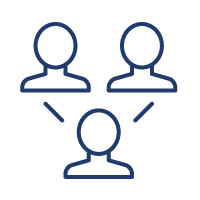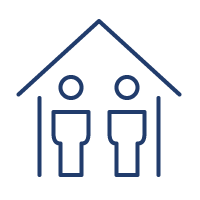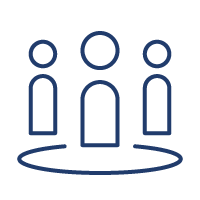“SeeWandel: Life in Lake Constance – the past, present and future” investigates the effects of nutrient decline, climate change, non-native species and other stress factors for the Lake Constance ecosystem, its biodiversity and functioning, as well as the utilisation of lake resources by people.
The close cooperation of the seven research institutions facilitates the evaluation of important questions regarding the resilience of the Lake Constance ecosystem, potential changes in ecosystem services as well as potential future problems, as part of the planned investigations.
SeeWandel provides a basis for water management and politicians to make scientifically informed decisions about the future of Lake Constance.
Background
At the annual meeting of the International Commission of Lake Constance Water Conservation (Internationale Gewässerschutzkommission für den Bodensee, IGKB) in May 2016, the importance of further investigations regarding the resilience of Lake Constance was recognised. In this context, it was agreed to perform additional monitoring, e.g. of invasive and non-native species which are increasingly spreading in Lake Constance with the opening of the Main-Danube Canal in 1992 (linking the Rhine and Danube catchment areas), as well as additional monitoring of the littoral zone (near shore area). This, together with the existing long-term data series from Lake Constance, should serve as basis for a “Resilience Lake Constance” project.
read more
Due to limited financial resources and staff appropriations, it was recognised that the IGKB alone can not implement a broad research program on the resilience of Lake Constance. With the help of Interreg, the development of the SeeWandel project (SeeWandel: Life in Lake Constance – the past, present and future; original working title EnBioBo7 – conservation and changes of the biodiversity of the Lake Constance ecosystem through cross-border resilience research and cooperation of 7 institutes) was advanced, which was officially approved in November 2017 and started in January 2018.
Seven research institutes from three countries (Germany, Switzerland and Austria) work together on various topics in order to understand the responses of Lake Constance to changing environmental conditions. In particular, complex interactions between climate change, invasive and non-native species, as well as re-oligotrophication and how they affect the ecosystem are the main focus. This cross-border cooperation offers the opportunity to conduct outstanding research on issues and questions of fundamental importance to Lake Constance. In particular, the cooperation with the DFG-funded Research Training Group of the University of Konstanz “RTG R3 – Responses to biotic and abiotic Changes, Resilience and Reversibility of Lake Ecosystems” provides a strong scientific framework. There are many points of intersection between the two major complementary research projects, and resulting synergies for the international thematic working groups and sub-projects. While the RTG R3 focuses more on basic research, the SeeWandel sub-projects are more of an applied nature.
13 projects from 7 institutes
SeeWandel comprises 13 sub-projects whose investigations contribute to an improved process-based understanding of the pelagic zone (off shore open water area) and littoral zone (shore area), as well as interactions between them.
Research community




Overview about the project structure and organisation
SeeWandel Project Synthesis Group (S14)
Steering Committee, B. Kraemer, PC, Experts

The synthesis group coordinates the project synthesis, producing targeted products tailored to specific audiences. Depending on the area of specialisation of the project synthesis, external experts will be consulted. The project leader, supported by the practice representative, acts as a link between the expert committee of the IGKB and IBKF, the respective practice representatives in the thematic working groups and the steering committee. This ensures continuous exchange and knowledge transfer between practice and science.
4 Thematic Working Groups
Thematic working groups (TG) facilitate scientific discussions and interactions within and beyond SeeWandel as well as with other external scientists, and foster exchange and knowledge transfer between science and practice with specific focus on the development of Lake Constance. Discussions and work performed within the framework of the four TG are fundamental for project synthesis and the transfer of knowledge. Inviting external experts strengthens the interdisciplinary research network. The practice representatives in the TG are familiar with the Lake Constance region and form the interface between science and practice / authorities / commissions, and contribute to their active networking.

Applied aspects
The work of SeeWandel at Lake Constance focuses on the close interaction with stakeholders, political
policy-makers and other social actors. The research approaches of SeeWandel require integration as well as interdisciplinarity and transdisciplinarity.
read more
SeeWandel aims to contribute to the development of effective tools for the sustainable management of the Lake Constance ecosystem, as well as to the understanding of the resilience of the ecosystem to current problems in the lake. Hence, SeeWandel contributes to the conservation and preservation of biodiversity at Lake Constance with existing use of lake resources by people. Project results are discussed intensively with authorities of the states bordering Lake Constance. Knowledge gained and methods developed within SeeWandel should also be applicable to other lakes.
The embedding of several research institutes involved in SeeWandel in the Lake Constance Monitoring of the International Commission of Lake Constance Water Conservation (Internationale Gewässerschutzkommission für den Bodensee, IGKB) and the European Water Framework Directive (EU-WFD), fosters the close contact with authorities and institutions of water conservation. The close cooperation of the seven research institutes as well as the close cooperation with the Research Training Group of the University of Konstanz “RTG R3 – Responses to biotic and abiotic Changes, Resilience and Reversibility of Lake Ecosystems” strengthens the international, interdisciplinary research network. In addition, representatives of the SeeWandel research institutes are actively involved in discussions, among others, of the fisheries associations (e.g. International Lake Constance Fishery Commission (Internationale Bevollmächtigtenkonferenz für die Bodenseefischerei), IBKF) and at the forums on re-oligotrophication (e.g. “Dialogforum See und Fisch Bodensee”). Representatives are available as contact experts for institutions at the federal level, such as the FOEN on the Swiss side.










